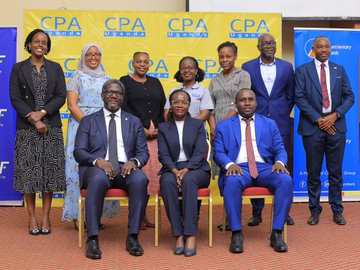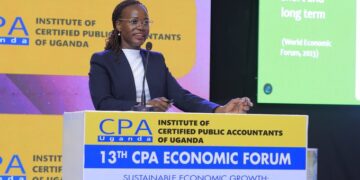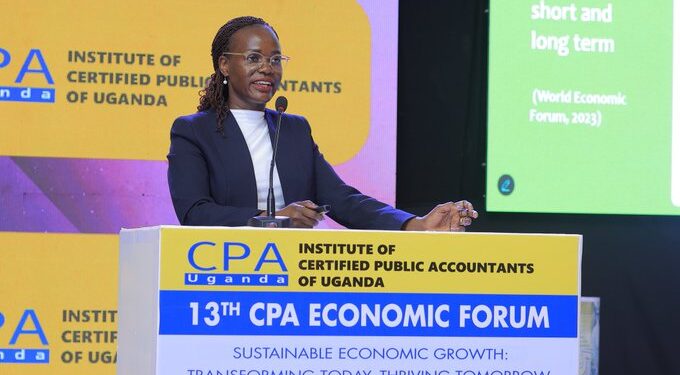Entebbe — Climate change is no longer just an environmental challenge—it is now firmly a financial reality. This was the strong message delivered during the 13th Institute of Certified Public Accountants of Uganda (ICPAU) Economic Forum held at Imperial Resort Beach Hotel in Entebbe.
In a powerful keynote address, Dr. Patricia Ojangole, Managing Director of Uganda Development Bank (UDB), warned that climate change is no longer a distant threat but a present financial crisis. “Global economic losses from climate impacts reached US$2.32 trillion between 2000–2019,” she said, noting that Uganda and other developing economies are facing the brunt of this crisis.
Dr. Ojangole underscored the vulnerability of Micro, Small, and Medium Enterprises (MSMEs), which account for over 70% of employment in Uganda. “Without adaptation financing, MSMEs could collapse under climate stress,” she warned, advocating for green finance to be redirected toward the real economy—the people, the jobs, and the sectors that drive inclusive growth.
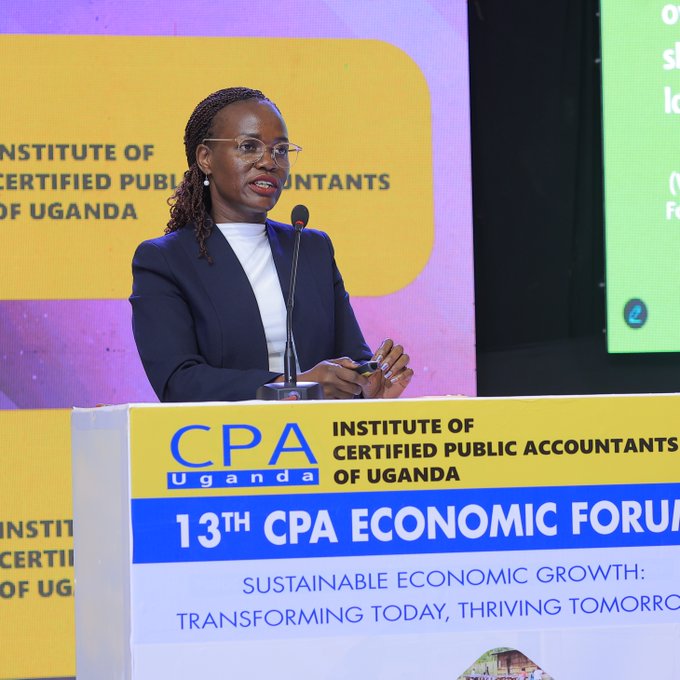
She laid out a clear roadmap for green investment priorities, including: climate-smart agriculture and resilient value chains, sustainable forestry and wetlands management, clean energy and renewable power infrastructure, mass transit systems and water transport and energy-efficient infrastructure.
“These aren’t isolated problems,” she said. “They’re a system failure. Green finance must be practical. It must support real people, real jobs, and real impact.”
Uganda’s updated Nationally Determined Contributions (NDCs) require an estimated USD 28.1 billion for full implementation by 2030. “We must align our financial systems with this green ambition,” Dr. Ojangole said.
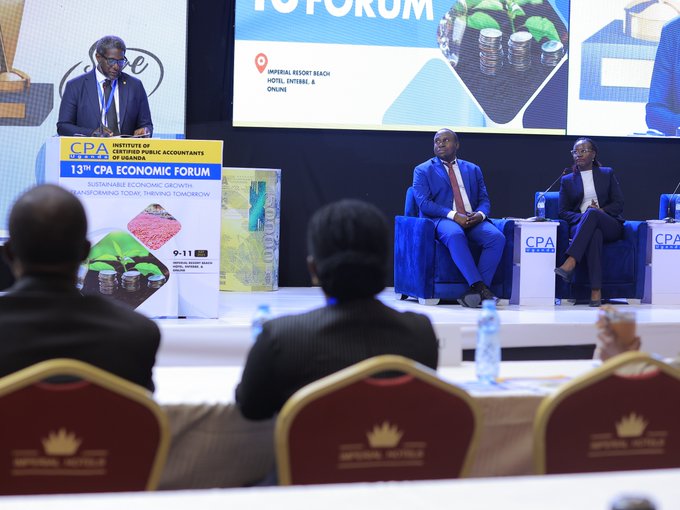
Accountants Called to Action
CPA Samuel Mwongeza, Executive Director at Stanbic Bank Uganda, chaired a high-level session focused on Green Economy and Climate Finance: Sustainable Policies and Strategies. The forum brought together thought leaders, including Mr. Denis Mugagga, head of the Climate Finance Unit at the Ministry of Finance, Planning and Economic Development (MoFPED).
“Climate finance is not an option, it is a lifeline for sustainability,” Mr. Mugagga said, highlighting Uganda’s recently finalised National Climate Finance Strategy and new tools like the Climate Change Budget Tagging (CCBT) system. “We cannot manage what we cannot measure,” he added, urging accountants to lead the accountability revolution in climate action.
With the establishment of a National Green Taxonomy, Uganda now has a standard for identifying and classifying economic activities that qualify as “green.” This allows public and private actors to align their investments with national climate goals. A Disaster Risk Financing Strategy is also in place, helping the country shift from reactive relief to proactive resilience building.
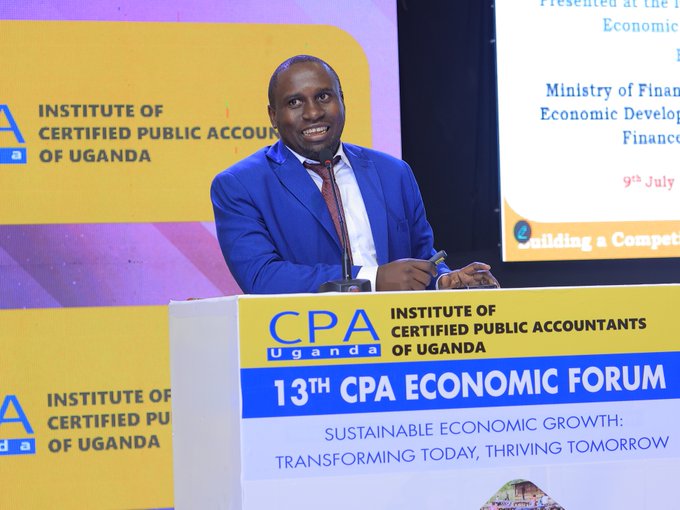
Financing the Transition
The forum spotlighted Uganda’s new National Climate Finance Vehicle (NCFV)—a multi-donor trust fund housed under MoFPED. It will pool resources from the Green Climate Fund, Global Environment Facility, carbon markets, and other sources to drive climate investments.
“Private sector players are not just funders; they are innovation leaders,” Mr. Mugagga noted. Key sectors identified for green growth include energy, housing, transport, and agricultural value chains.

Importantly, Uganda’s climate finance approach now incorporates Gender Equity and Social Inclusion (GESI), ensuring women, youth, and vulnerable communities access climate finance and benefit from emerging green jobs.
The 13th Economic Forum ended with a resounding call for action: Uganda’s green transition is not just about carbon reductions—it’s about building a resilient, inclusive, and profitable future. With the financial tools, policy frameworks, and political will now in motion, stakeholders say the time for implementation and impact is now.
